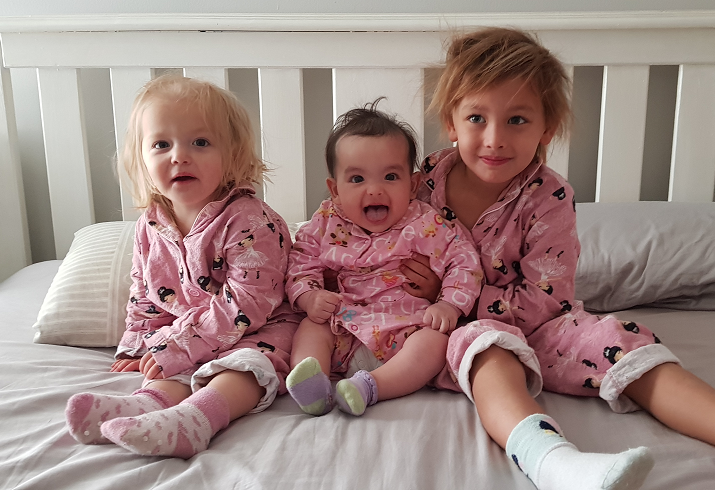Baby Sophia happy and healthy after CITRA innovation

Two years ago, East Metropolitan Health Service's Centre for Implant Technology and Retrieval Analysis (CITRA) played an instrumental role in saving the life of a new-born girl. Baby Sophia (pictured left with her siblings) was born with a rare, life threatening condition where her nasal cavity was completely blocked by fused bone. After six surgeries, Sophia is healthy, happy, and able to breathe normally.
Moments after Sophia was born, her parents watched as hospital staff called a code blue, and began performing compressions on her chest. Sophia couldn't breathe, and she was placed on a ventilator while doctors searched for an answer. She was born with a complete blockage of the nose, a dangerous condition for infants, who don't breathe through their mouth during the first few months after birth.
Sophia was small, even for a newborn, which significantly complicated the surgery required to save her life. The normal surgical instruments used to treat the condition were potentially too large to fit through her nose, making the surgery impossible. Sophia's surgeon at Princess Margaret Hospital, Dr Jenn Ha, collaborated with the CITRA team to build an exact plastic model of her skull based on a CT scan. Dr Ha was able to trial the surgery on the model, without risk to Sophia and minimising the time under anaesthetic.
The model trial revealed that the normal surgical instruments were too large, and could not be used to treat Sophia's condition. The team instead turned to smaller instruments, designed for operating on the ear, and was able to practise and successfully perform the procedure. The solid modelling of Sophia's skull, a first use of technology by CITRA, was vital to the successful operation.
The clinical innovation of solid modelling pioneered by CITRA is now an important tool for the planning of complex surgical procedures. It's applied through the trial of novel approaches and developments of surgical instruments required to treat complex development cases, like Sophia's. It allows surgeons the confidence to perform procedures, and a tactile, visual aid for explaining them to patients and families.
Now, Sophia is almost two years old, living happily with her parents and two sisters and is able to breathe normally. The only indication of her condition is her souvenir; an exact plastic model of her newborn skull.

